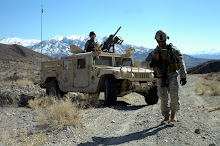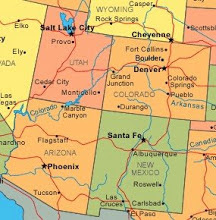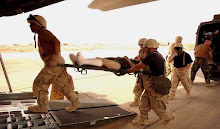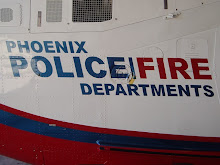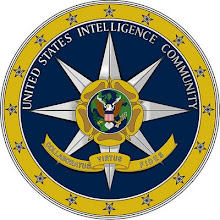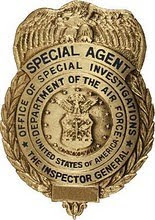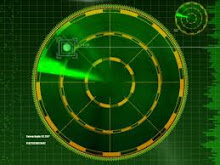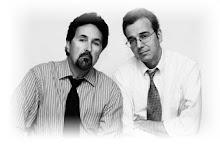By Steve Hammons
The concepts of hard power, soft power, smart power and transcendent power have been used primarily in discussions about the use of military forces and diplomacy in international activities.
However, these ideas can also be applied to a wide range of other fields and endeavors including public safety.
Public safety agencies use hard power every day. Peace officers have guns, pepper spray, handcuffs, lockups and other tools at hand. Firefighters have special trucks and hoses to douse fires with water as well as advanced medical gear for paramedics and emergency medical technicians to help injured or ill people.
At the same time, these kinds of public safety efforts also use soft power such as one-to-one communication, community outreach and safety education programs.
By merging hard power and soft power, these organizations tap into smart power, the balanced use of both methods and resources in appropriate ways and circumstances.
Public safety personnel can also make good use of certain aspects of transcendent power, an idea based on the term “transcendent warfare” which was used by a former Navy SEAL officer in a 2001 graduate-level research report as part of his studies at the Marine Corps War College.
PSYCHOLOGY AND BEHAVIOR
In public safety responses involving hard power and soft power, human behavior is a key element.
For peace officers, situations involving dangerous behavior, unlawful activity or domestic violence all stem from human behavior. Human behavior results from or in tandem with human psychology, perception, awareness and consciousness.
The same could be said about fire officials. They deal with accidents and injuries as well as fires, many of which could have been prevented by safer behavior. Again, behavior flows from human awareness.
Unsafe behavior can be prevented or mitigated. People can be made more aware of situational dangers around them.
Situational awareness by public safety personnel, children and teens, and average adult citizens can benefit from some of the ideas included in transcendent power and transcendent warfare. Safety steps can be implemented ahead of emerging danger. Danger can be anticipated and possibly perceived ahead of time.
How can research, development and operational experiences involving transcendent warfare help in these ways?
When the SEAL officer made reference to the idea of transcendent warfare, he was, in part, referring to advanced research and operational activities of the U.S. military and intelligence communities in the 1970s, ‘80s and ‘90s.
This research into human awareness and cognition found that humans seem to truly have a “sixth sense.” That is, we have the ability to use our intuition, feelings and gut instincts to sense more about various situations and develop information based on these perceptions.
The then-secret R&D and operations of what came to be known as Project STAR GATE used new understanding about the human sixth sense to gather intelligence information for military and intelligence purposes.
USING THE SIXTH SENSE
It has sometimes been said that peace officers can develop “cop instincts.” In other words, they start to get feelings and perceptions about criminal behavior.
Sometimes these perceptions may be based on subtle cues they pick up visually – someone is acting in suspicious or deceptive ways, or something just doesn’t appear as it should be.
However, other times there may be awareness that is not obtained from the normal five senses of sight, hearing, smell, taste or touch. The perception of a sixth sense might come into play, independently or in sync with what the officer may perceive in more conventional ways.
Emergency medical personnel, when assessing a person’s injuries, may see various symptoms and indicators. There may also be an absence of certain obvious injury. This can be the case with internal bleeding, head trauma and other injuries. Can sixth-sense perception, in combination with other tried and true medical assessment methods, help in evaluating a victim’s condition?
When fighting a structure fire, in addition to knowledge about fire’s effects on various building materials, can a firefighter’s sixth sense help anticipate a building’s catastrophic collapse?
In short, can we use our sixth sense to gather intelligence information or understanding about a range of situations that affect public safety in our everyday lives and in the performance of professional duties?
Based on significant research and operational activities conducted by U.S. military and intelligence personnel, the answer seems to be yes.
By learning more about transcendent warfare, Project STAR GATE and similar resources, public safety personnel may be able to use new and advanced knowledge of human awareness and perception to protect the public, enhance their professionalism and help ensure their own survival.
skip to main |
skip to sidebar

In the past 30 days, readers from approximately 40 countries or territories using about 20 languages visited the Joint Recon Study Group site.

To see more articles, scroll down the right-side column.

Steve Hammons

Articles from the Joint Recon Study Group site and Transcendent TV & Media site are included.
The Joint Reconnaissance Study Group is the San Diego-based, combined-service/agency, research-and-activities team in my novels "Mission Into Light" and sequel "Light's Hand." This site contains information of interest to the JRSG.
Home page: Joint Recon Study Group site
Readers from around the world visit this site.

In the past 30 days, readers from approximately 40 countries or territories using about 20 languages visited the Joint Recon Study Group site.
April 2021 threat alert: ‘Force protection’ for our troops now the responsibility of all Americans
First responders must deal with society’s problems, shortcomings, injustices every day
Could some UFOs be linked to Native American 'white stone canoe' legends, stories?
Wildland firefighter basic training available at community colleges, tech schools, training centers
‘Boomer remover’ coronavirus is bigger threat to WWII generation that saved the world
‘Black swan’ events that aren’t: Coronavirus, climate emergency, unidentified aerial phenonema
Reagan’s complete 1987 UN message on ‘alien threat’ overlooked: Grave danger here, now
Was Reagan briefed about UFOs and original ‘Day the Earth Stood Still’ movie?
My military draft lottery number was #165 during final Vietnam War years
“Keep On The Sunny Side,” by The Whites, from movie O Brother, Where Art Thou?”
Living along Ohio River for centuries, Native Shawnee called it ‘Kiskepila Sepe’ – ‘Eagle River’
Native American words around us: States, towns, rivers, lakes, terrain, plants, animals, military
Athens County, Ohio, was key spot when colonists, Redcoats fought Shawnee in 1774 battle
1787 Northwest Ordinance set course for Ohio, Indiana, Illinois, Michigan, Wisconsin, Minnesota
Smallpox-tainted blankets were 1763 bioweapon on northern Appalachian Mountains frontier
Diana Krall performs “Maybe You’ll Be There" live in Paris with Paris Symphony Orchestra 2001.
Books to read in 2021? Novels "Mission Into Light" and the sequel "Light's Hand"
Novel excerpt: Renew, prepare America with ‘Urgent Response Group’ for teens, young adults
Diana Krall performs “I Get Along” live in Paris with Paris Symphony Orchestra 2001.
Steve Tyrell sings “Give Me the Simple Life.”
Diana Krall performs “Love Letters” live in Paris with Paris Symphony Orchestra 2001.
Visit the article archives!

To see more articles, scroll down the right-side column.
Novel "Mission Into Light" overview on Amazon
Novel "Light's Hand" overview on Amazon
Adventures of the Joint Recon Study Group: Overview and synopses of activities and operations
Key chapter overviews: Points of interest in the novel "Mission Into Light"
Key chapter overviews: Points of interest in the novel "Light's Hand"
Multimedia rights available
English and foreign-language book rights, audio book and e-book rights for "Mission Into Light" and "Light's Hand" are available. Movie and TV rights are available.
I'm seeking agent representation for these works and rights.
Please contact Steve Hammons for more information at hammons55@gmail.com.
Feature film screenplay
I completed a feature film screenplay in 2006 based on “Mission Into Light” and “Light’s Hand” combining key elements of both novels.
The screenplay takes audiences into the adventures and discoveries of the Joint Recon Study Group and the relationships among team members, friends and associates as they explore leading-edge research and emerging transcendent developments.
I'm seeking agent representation for this screenplay.
.........................
I also wrote a TV series pilot script based on "Mission Into Light" and "Light's Hand" story. I'm seeking agent representation this script.
About the Author

Steve Hammons
About the Author
I was born and raised in southwestern Ohio near the Kentucky and Indiana borders, then went to college at Ohio University in the southeastern Appalachian region of the state near West Virginia.
I graduated with a dual major in communication (journalism focus) and health education (psychology focus) with a minor in pre-law.
Ohio U. is home to the respected Scripps College of Communication and E.W. Scripps School of Journalism.
I also completed two graduate-level courses in guidance counseling theory and method at Ohio U.'s College of Education, School of Applied Behavioral Sciences and Educational Leadership.
At the end of my undergraduate education at Ohio University, I moved to the beautiful American Southwest where I applied my education, continual training and and ongoing experience to related professional fields such as health care, journalism and special research areas.
My novels "Mission Into Light" and the sequel "Light’s Hand" are available in e-book and 6"x9" paperback from most online booksellers worldwide.
Readers review metaphysical-military-intelligence adventure novel ‘Mission Into Light’
My articles on DoD CultureReady blog, Defense Language and National Security Education Office
Transcendent TV & Media site
Past articles: Scroll down the right-side column for more articles.

Articles from the Joint Recon Study Group site and Transcendent TV & Media site are included.
New films, TV series, books tell stories of ‘Ohiyo’ River Appalachian mountain region
Hillbillies, pioneers and UFOs: Current major media projects explore southern Ohio
Well-known ‘Mothman’ case also about dedicated local journalist, Native history?
Film experts, fans celebrate rediscovery of Appalachian story ‘Spring Night Summer Night’
'Hillbilly' J.D. Vance, columnist Clarence Page find common ground in southwest Ohio roots
‘Phoenix lights’ UFO linked to multiple incidents around four-state Colorado Plateau?
UFOs, odd phenomena reported on perimeter of Colorado Plateau
Theory about 37th parallel and UFOs sparked book, TV shows, film concept
Sketchy dimensions: UFO investigations reveal need for caution, potential for beneficial discovery
Can UFO-acquired technologies help the U.S. economy?
Many Americans have Cherokee in the family tree
Americans with Cherokee roots can't rely on government bureaucracies to define them
Government-approved Cherokees don’t tell whole story?
Does tribal government politician speak for all Americans with Cherokee ancestry?
‘Official Cherokees’ disrespecting mixed-ethnicity Americans?
Could ‘Hillbilly Elegy’ author J.D. Vance have Appalachian Cherokee ancestry?
Journalism’s dilemma: Covering weird science
Movie ‘Sedona’ explores metaphysical mysteries, Nature’s beauty, human heart
Novel excerpt: Insight, understanding not always found in official reports, documents
Novel excerpt: From Sedona to Heaven – What is the dimension we call ‘Heaven?’
Interest grows in healthy aging, anti-aging, reverse-aging, transcendent aging
Analysis: Research company involved with UFOs opens up about activities
Startup company researching advanced tech, UFOs gives updates during Q&A
Leverage US resources to understand unknown objects encountered by Navy, defense expert says
US Navy UFO encounters: Space scientists speculate on ‘first contact’ with visitors
UFOs in the heartland: New movie, ‘Blue Book’ TV series set in southwestern Ohio
Year of UFOs, 1952, may play role in Disney movie ‘Tomorrowland’
UFO situation awareness: Phoenix conference hosts scientists, researchers, media, public
Appropriate security on UFOs probably 2-way street
Roswell was ET crash, says ex-CIA officer – what’s been going on since 1947?
Alleged briefing to Pres. Reagan: Original ‘Day the Earth Stood Still’ was UFO acclimation?
Beyond UFOs and extraterrestrials: Human consciousness
Journalism in media mix: New shows ‘Chasing UFOs,’ ‘Spacing Out’ help prepare public
Further UFO disclosure requires readiness, teamwork, education, intelligence
Disclosure, acclimation, security work together on UFO, ET challenges
Up to speed on UFOs and intelligent visitors? Revised ‘A.D. After Disclosure’ book released in May
Authors Zabel, Dolan explore adjusting to UFO truths in new book ‘A.D. After Disclosure’
Blog Archive
-
▼
2009
(34)
-
▼
March
(8)
- Transcendent warfare, transcendent power have pote...
- UFOs and public safety: Firefighter manual explain...
- Transcendent power has public safety applications
- Wounded troops: DARPA project to regrow human tiss...
- Joint competency in transcendent power needed
- Transcendent power is natural resource for ARPA-E
- Exploring and deploying soft power, transcendent p...
- Transcendent power reshapes hard power, soft power...
-
▼
March
(8)




























































